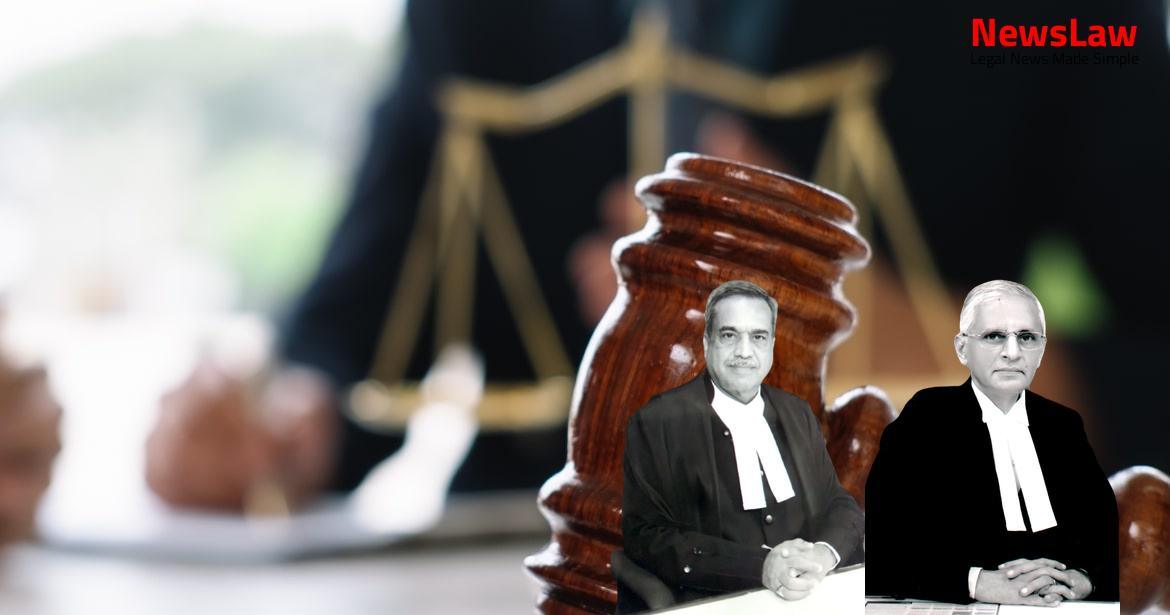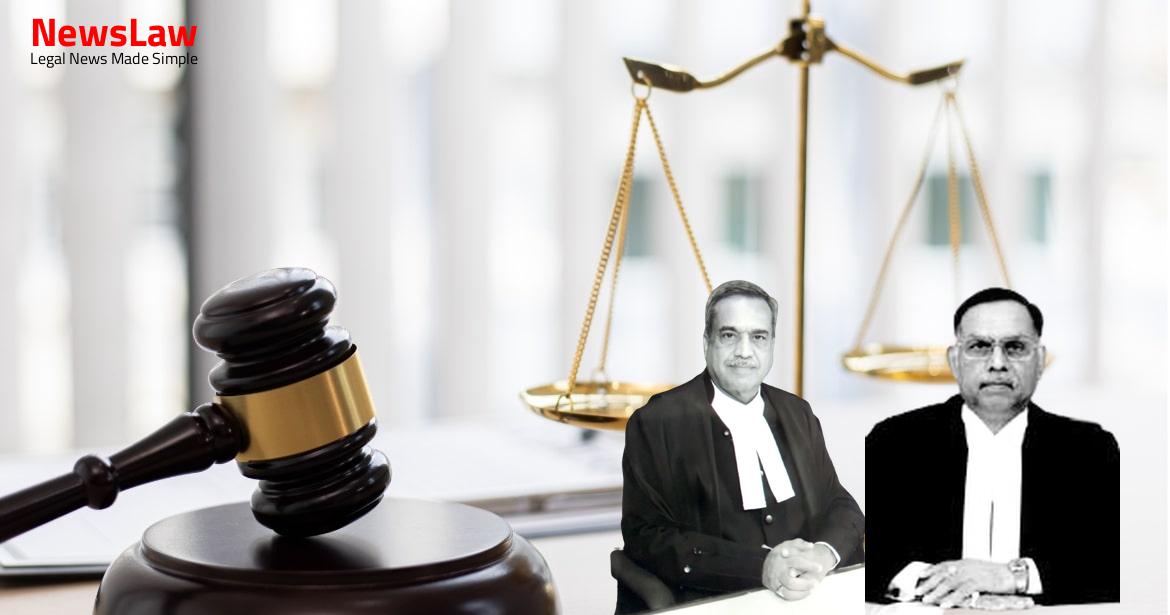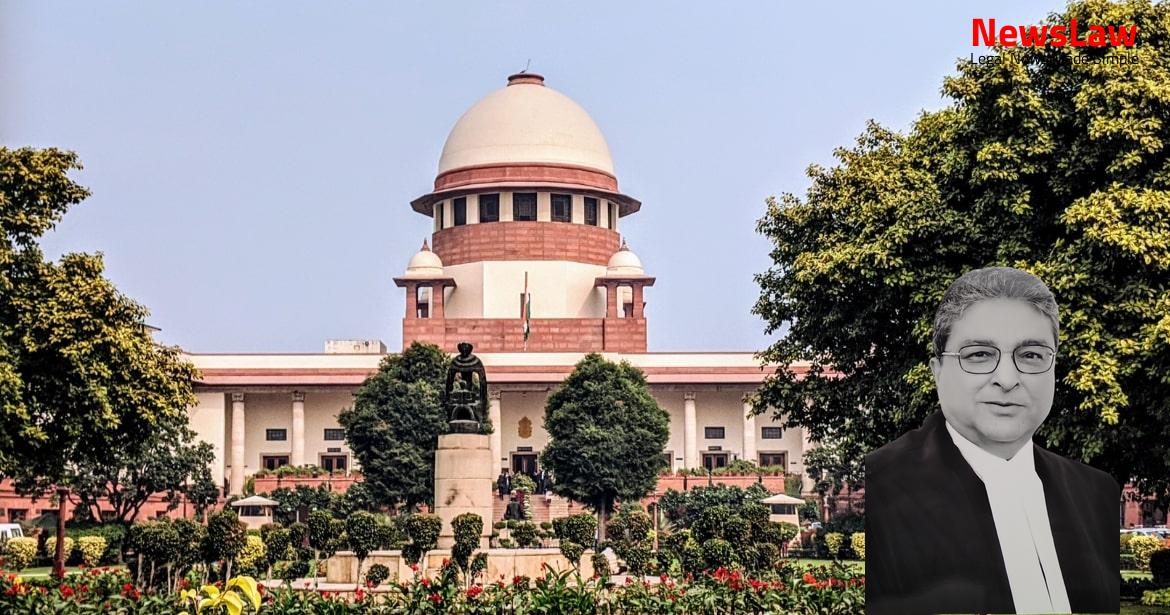Explore a detailed legal examination of the court’s analysis regarding investigative authority in the context of quashing criminal proceedings. The focus lies on the complexities of delegation schemes, proper authorization, and the significance of adherence to procedural requirements outlined in the law. This summary sheds light on key legal considerations without mentioning specific case or party names, emphasizing the court’s thorough legal analysis.
Facts
- The respondent ignored the rates from rate contract dated 28-03-2009, purchasing drug kits at higher rates from CPSEs in 2011.
- No market survey or negotiations were conducted to ensure no loss to the Government exchequer in 2010-11.
- No quality control checks were done on packing and packaging of medicines and kits.
- The respondent bought NRHM kits from suppliers at exorbitant rates rather than the original manufacturer.
- An FIR was lodged against the respondent under the J&K Prevention of Corruption Act, 2006 and RPC for misappropriation during 2010-11.
- The allegations include purchasing sub-standard medical kits at high rates in violation of supply order conditions.
- State of Jammu & Kashmir appealed against the High Court judgment and order
- Respondent-accused filed a petition to quash criminal proceedings citing issues with Section 3 of the Prevention of Corruption Act and prior sanction under Section 155 Jammu & Kashmir Cr.P.C.
- High Court quashed the preliminary verification, FIR, Entrustment Order, and declared Rule 3.16 of Vigilance Manual, 2008 as ultra vires
- High Court’s decision based on conflict with Supreme Court decision in Lalita Kumari case
Also Read: Legal Analysis on Conviction Based on Sole Testimony of Prosecutrix
Arguments
- The author argues that there is no provision in the Cr.P.C. allowing the investigating agency to investigate an offense before the registration of an FIR.
- The author emphasizes that the Cr.P.C. cannot be stretched to allow in-depth analysis of a complaint by the investigating agency prior to the FIR.
- Special and reasoned orders are deemed necessary when conferring authority on a non-designated investigating officer.
- Reasons for authorization are required only in specific circumstances involving parties’ rights or quasi-judicial functions.
- Reference is made to legal cases like Special Land Acquisition Officer, Bombay v. Godrej & Boyce and Indian National Congress v. Institute of Social Welfare to support this argument.
- The author asserts that the J&K PC Act has its own delegation scheme distinct from the provisions discussed in the Bhajan Lal case.
- A case comparison between Bhajan Lal and Ram Singh is presented to differentiate the decisions and argue for the validity of authorization in investigations.
- The High Court’s decision to quash the prosecution based on these arguments is contested as a grave error.
- Various legal provisions and court decisions are cited to support the argument against the High Court’s decision.
- The importance of proper authorization and the specific provisions of the J&K PC Act are highlighted throughout the argument.
- The argument also touches upon the nature of investigation, delegation of authority, and the requirement of reasons in certain circumstances.
- Non-adherence to Section 154 rendered the application under Section 156(3) and the order passed by the Magistrate invalid.
- Adherence to Section 154 is considered mandatory and not a mere irregularity.
- Failure to follow Section 154 makes subsequent actions illegal.
- The FIR registered under Section 156(3) was quashed due to non-adherence to Section 154.
Also Read: Legal Analysis on Concurrent Sentences in Drug Trafficking Cases
Analysis
- The Court found that the one-word direction ‘investigate’ by the Superintendent of Police was not valid in authorizing the investigation by the Station House Officer under Section 5-A(1) of the Prevention of Corruption Act.
- The High Court held that conducting a Preliminary Enquiry is not equivalent to investigation under the code of criminal procedure and does not prejudice the accused, as it is only for finding out a prima facie case before registering an FIR.
- The High Court’s quashing of criminal proceedings based on non-compliance with Section 155 of J&K Cr.P.C. was deemed incorrect, as all offences under the Act were held cognizable and non-bailable.
- The High Court erred in quashing the entire criminal proceedings based on the alleged invalidity of authorizing the investigating officer, as similar circumstances have been handled differently by higher courts.
- The High Court quashed the criminal proceedings against the respondent for offences under the J&K PC Act, 2006.
- Reasons for quashing the proceedings included non-reasoned authorisation by the Senior Superintendent of Police and lack of a special reasoned order for authorising a non-designated officer.
- Non-compliance with the mandatory provision under Section 3 of the J&K PC Act, 2006 was cited as a reason for quashing the proceedings.
- Lack of prior sanction of the Magistrate for the offence under Section 120B, as required under Section 155 of the J&K Cr.P.C., was highlighted.
- Delay in conducting the preliminary verification was mentioned as another reason for quashing the proceedings.
- Violation of the principle that preliminary verification should not enter the domain of investigation, as held in the case of Lalita Kumari (supra), was also mentioned.
- The allegations in the FIR were deemed legally untenable by the High Court.
- Section 537 of the Criminal Procedure Code states that a court’s finding, sentence, or order cannot be reversed or altered on appeal or revision due to errors or irregularities unless they have resulted in a failure of justice.
- If cognizance is taken based on a police report that violates mandatory provisions related to investigation, the trial outcome cannot be set aside unless it has led to a miscarriage of justice.
- The Governor of Haryana has authorized all Inspectors of Police to investigate offenses under the Prevention of Corruption Act, 1947.
- Section 3 of the J&K PC Act, 2006 specifies that offenses under the Act are cognizable and non-bailable; higher-ranking officers of the Vigilance Organization can be specially authorized to investigate such offenses.
- Certain stipulations are provided regarding the rank of police officers who can investigate specific offenses under the Act, emphasizing the need for authorization from higher authorities for investigations and arrests.
- High Court erred in holding and declaring Clause 3.16 as ultra vires.
- Respondent cannot be held vicariously liable in the absence of main conspirators as the allegations are in respect of his individual capacity.
- No question of vicarious liability as the allegations are against the Directors of the Private Limited Companies.
- High Court’s observation that respondent cannot be held liable in absence of main conspirators is unsustainable.
- High Court erred in quashing the entire criminal proceedings based on the above ground.
- Impugned judgment quashing the criminal proceedings and declaring Rule/Clause 3.16 as ultra vires is unsustainable and quashed.
- Criminal proceedings for the specified offences to be investigated and proceeded further expeditiously.
Also Read: Legal Jurisdiction and Award Finality in Arbitration Dispute
Decision
- The present appeal is allowed
- The judgement is accordingly set aside
- The appellant’s case is successful
Case Title: THE STATE OF JAMMU AND KASHMIR Vs. DR. SALEEM UR REHMAN (2021 INSC 703)
Case Number: Crl.A. No.-001170-001170 / 2021



